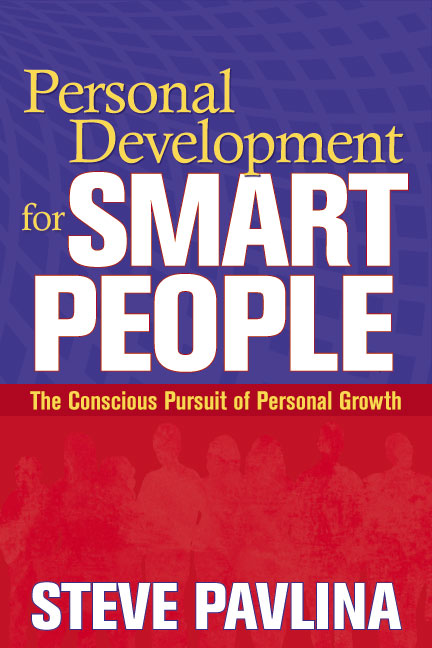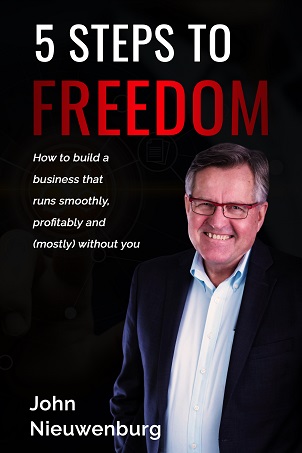Key Concepts: Personal Development for Smart People

Steve Pavlina’s book, Personal Development for Smart People: The Conscious Pursuit of Personal Growth, offers an interesting look at self-improvement.
“Perception is the most basic aspect of truth,” Pavlina writes, “If you want to improve some part of your life, you have to look at it first.”
For example, if you want to know how your relationship is doing, you ask yourself “How do I feel about this relationship? What parts are working well? What parts need improvement?” Ask your partner the same questions and compare your answers. Figuring out where you stand will help you decide what changes you’d like to make. Perception is a key component of personal growth because we react to what we perceive to be true.
A list of habits that can boost personal effectiveness, there are 66 in total. Here are just 9 of them to get you started!
- Daily goals. Set targets for each day in advance. Decide what you’ll do, then do it. Without a clear focus, it’s too easy to succumb to distractions.
- Worst first. To defeat procrastination, learn to tackle your most unpleasant task first thing in the morning, instead of delaying it until later. The small victory will set the tone for a very productive day.
- Peak times. Identify your peak cycles of productivity, and schedule your most important tasks for those times. Work on minor tasks during your non-peak times.
- No-comm zones. Allocate uninterruptible blocks of time for solo work where you must concentrate. Schedule light, interruptible tasks for your open-communication periods and more challenging projects for your blackout periods.
- Mini-milestones. When you begin a task, identify the target you must reach before you can stop working. For example when writing a book, you could decide not to get up until you’ve written at least 1000 words. Hit your target no matter what.
- Timeboxing. Give yourself a fixed time period – 30 minutes for example – to make a dent in a task. Don’t worry about how far you get. Just put in the time.
- Batching. Batch similar tasks such as phone calls or errands together, and knock them out in a single session.
- Pareto. The Pareto principle is the 80-20 rule, which states that 80% of the value of a task comes from 20% of the effort. Focus your energy on that critical 20%, and don’t overengineer the non-critical 80%.
- Ready-fire-aim. Bust procrastination by taking action immediately after setting a goal, even if the action isn’t perfectly planned. You can always adjust course along the way.

Free E-Book: Five Steps to Freedom

How to build a business that runs smoothly, profitably, and (mostly) without you
Feeling stressed out and overwhelmed with a business that is taking all your time - and not giving you enough in return?
Are you finding it challenging to hire the right team (and get them to do the right things)?
I wrote this little guide for you!
Enter your details below to receive your free copy!
